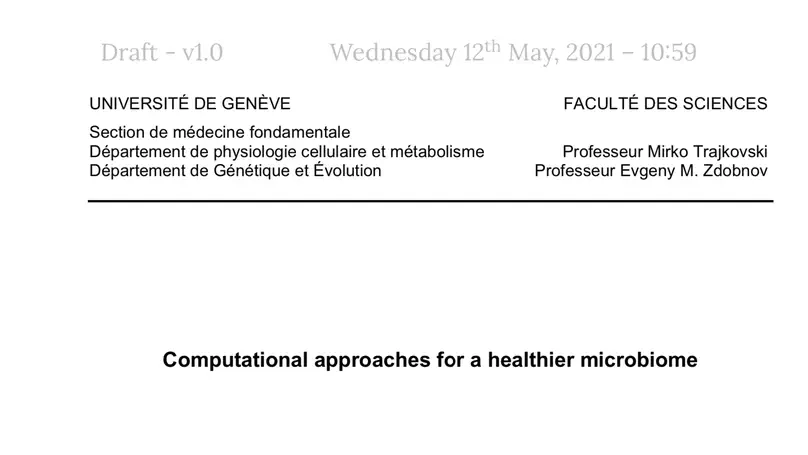
Metagenomics transformed how we study microbiomes by enabling the analysis of entire microbial communities from diverse environments, without the need for culturing. Recent improvements in algorithms enabled the assembly of larger and larger contigs from metagenomes, which then can be clustered together to produce draft genomes of new species. In this way, an almost unimaginable number of genomes from uncultured microbes could be assembled. These genomes allow for dataset-specific taxonomic analysis and genome-resolved functional annotation of metagenomes.
In this online course, we will familiarize the participants with the steps required in assembly-based metagenomics (assembly, binning, genome completeness estimation, taxonomic and functional annotation). In the hand-on session we will use metagenome-atlas, a pipeline that implements the commonly used tools in a single workflow allowing users to get started with only three commands. Finally, we will show how to use the output of metagenome-atlas to answer scientific questions. The course will also serve as a platform for interaction between researchers and students, working with metagenome and metatranscriptome data.
Slides
For background reading have a look at my PhD thesis.

I finished writing my PhD Thesis with the title: Computational approaches for a healthier microbiome You can peak inside here. I made a small graphic how many words I wrote over time.
Program
Schedule (three separate days)
- Monday September 27
- Friday October 1
- Monday October 4 Time: 9:15 – 12:30 + 13:30 - 17:00 EEST
Day 1
- What is metagenomics?
- From Reads to genomes
- 💻 Workshop 1: Setup & Conda
Day 2
Invited Speaker:
Dr. Sofie Thijs, Center of Environmental Sciences, Hasselt University, Belgium
Day 3
Invited Speaker:
Unravelling phototrophic microbial mysteries in iron-rich ecosystems using integrated ‘omics approaches
Dr. Jackson M. Tsuji, Japan Society for the Promotion of Science Postdoctoral Fellow, Hokkaido University, Japan
How not to analyze a metagenome
Dr. Katharina Kujala, Water Resources and Environmental Engineering Research Unit, University of Oulu, Finland